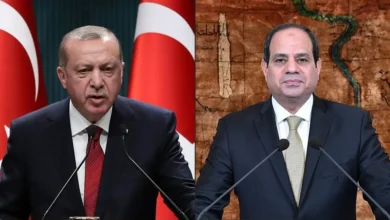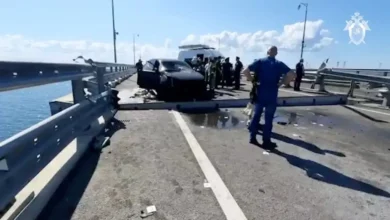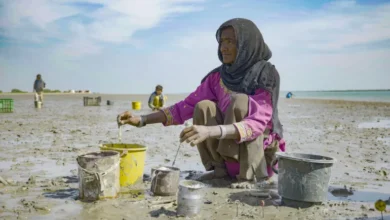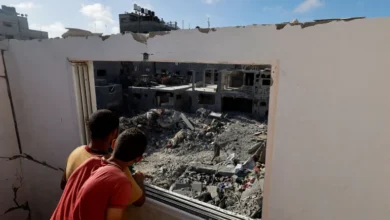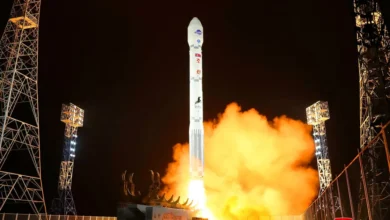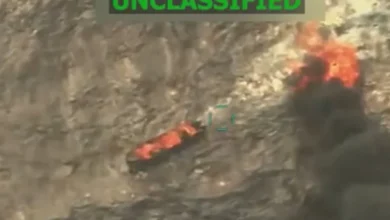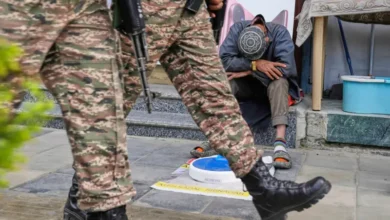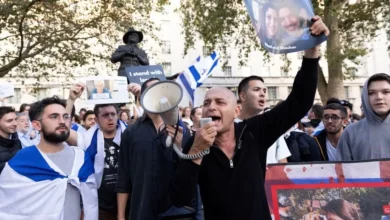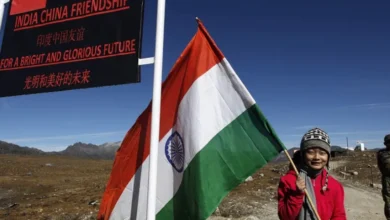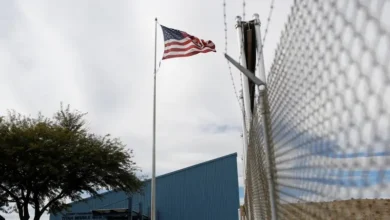Chaos, fear reign as foreign nationals try to leave Gaza through Rafah
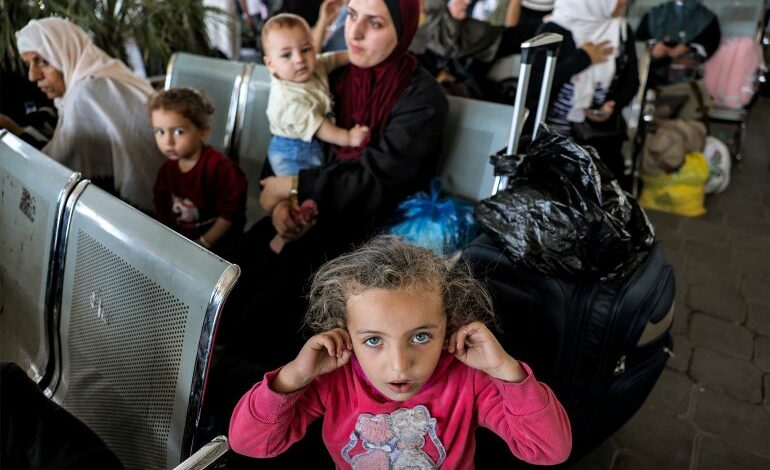
When Fady Abukhousa travelled to the Gaza Strip some weeks ago from Australia, he never imagined the nightmare scenario he would find himself in.
He, his wife Amani, and their two young children, Mohammed and Yazan – all of whom are Australian citizens – were visiting family in the besieged enclave.
Abukhousa left for home early, returning to Sydney in late September, leaving behind his wife and children. Now, they’re trapped in the blockaded enclave amid Israel’s devastating bombing campaign on the Gaza Strip. Also stuck are other members of his family who aren’t citizens of Australia, including his mother and brother.
“It’s really hard,” Abukhousa told Al Jazeera, adding that his children, aged seven and 10, can’t sleep at night because of the relentless bombing.
Since he learned that the border crossing linking Egypt with the Gaza Strip temporarily opened Wednesday to allow a limited number of critically wounded people and foreign nationals to exit, Abukhousa has been desperately trying to reach his family.
His wife and children, along with some 500 other people, are part of a list of foreign and dual nationals that the Gaza Borders and Crossings Authority said it contacted early Wednesday, urging them to leave for the Rafah border crossing.
But due to a communications blackout that Israel reimposed on Gaza overnight, Abukhousa has no idea if they got the news, as he hasn’t heard from them in two days.
His situation is emblematic of the challenges that persist in getting people from Gaza out and away from Israel’s bombardment of the strip after Hamas’s attack on southern Israel on October 7.
“I don’t think they know [the crossing] is open,” said Abukhousa, referring to his family.
His family has made the trek to the crossing four times already in the last few weeks, as they shelter about a 20-minute drive away, at the Bureij refugee camp located in the central Gaza Strip.
But they left each time, realising it remains closed, with the situation at the border too dangerous for them to stay.
The Australian embassy, meanwhile, has told Abukhousa they can’t do much to help his family.
No security, bombs everywhere
In the southern Gaza city of Khan Younis, Nadia Eldin shares Abukhousa’s desperation.
Eldin isn’t a dual citizen or foreign national herself. But her daughter Lama is a citizen of Bulgaria, born in the European country when the Eldin family lived there some 15 years ago.
While Lama is on the Gaza Borders and Crossings Authority’s list, she didn’t receive a call telling her to head to the Rafah border, her mother said.
Instead, Eldin got a call from friends in Ramallah on Wednesday, as a trickle of communications was restored, urging them to head to the crossing.
The mother of three wants to go desperately, to seek shelter with relatives she has in Cairo, Egypt, but the family has no car – nor the confidence that they will not be bombed along the way, she said.
“What shall I do now?” Eldin wondered, sobbing as she spoke to Al Jazeera over the phone. “There is no security. Bombs everywhere.”
As she spoke, she noted that her phone battery was dying. She is only able to charge it using a generator for brief periods during the day.
Meanwhile, it is unclear whether people hoping to cross at Rafah need Egyptian visas.
Amena Nasrate is taking no chances. Her mother and grandmother are in Gaza. The Palestinian student in Cairo, who is also an Australian citizen, was on Wednesday headed to her country’s embassy in Egypt to get visas for her relatives once she heard of the crossing’s opening.
Nasrate’s father, Sam, is also on the Gaza Borders and Crossings Authority’s list, as an Australian citizen. He, too, remains in Gaza.
“The situation is getting worse,” she told Al Jazeera, frantic to get her family out.
